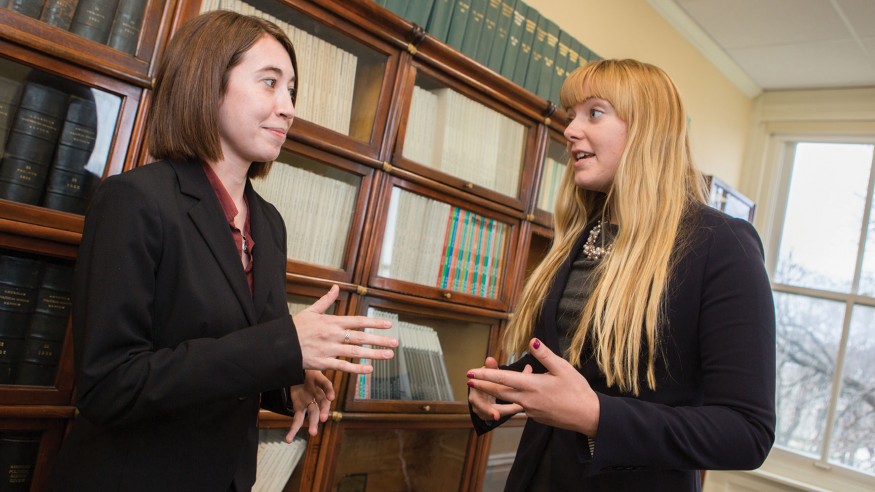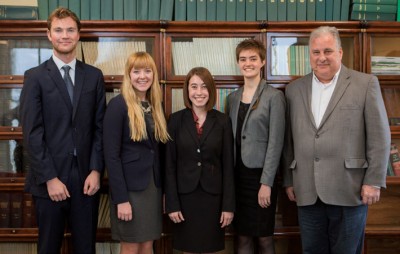
OWU Earns Top-5 Finish in National Moot Court Competition
When the final verdict was handed down, seniors Katherine Berger and Rhiannon Herbert earned an OWU-record-setting, top-5 finish in the American Collegiate Moot Court Association’s national championship, held in January in Long Beach, CA.
Pre-law advisor Michael Esler, Ph.D., coach of OWU’s moot court team, notes that Ohio Wesleyan was one of the two smallest schools in the country to advance a team as far as the tournament’s round of 16.
Berger, who has been participating in Moot Court since her freshman year, called the annual competition “the defining experience of my college career.”
“The adrenaline that you feel when you are standing in front of established legal professionals and being battered with questions, yet have the confidence that you know the answers and can hold your own, is incredible,” says Berger, a resident of Sunbury, OH, who will pursue a future career as litigator at the trial or appellate level.
Herbert, who began competing as a junior, said the competition has significantly sharpened her public-speaking skills and her overall comfort in being in front of an audience.
“The most rewarding part of moot court is seeing all of the hard work you have poured into your outline and preparation pay off when you win a round against a team you didn’t think you would beat,” says Herbert, a resident of Mentor, OH, who hopes to become a state prosecuting attorney.

In addition to Berger and Herbert, Ohio Wesleyan junior Forest Dearing of Louisville, KY, and sophomore Chloe Dyer of Guysville, OH, also advanced from regional competition to the national finals.
“Neither had competed prior to this year, so to reach the finals was remarkable,” Esler says.
The American Collegiate Moot Court Association is the premier moot court competition for undergraduates, Esler says, simulating an appellate court hearing in which teams of two “attorneys” argue constitutional issues before a panel of lawyers and judges who portray Supreme Court justices. This year’s issues involved the free exercise of religion and equal protection rights of undocumented persons in the country illegally.
